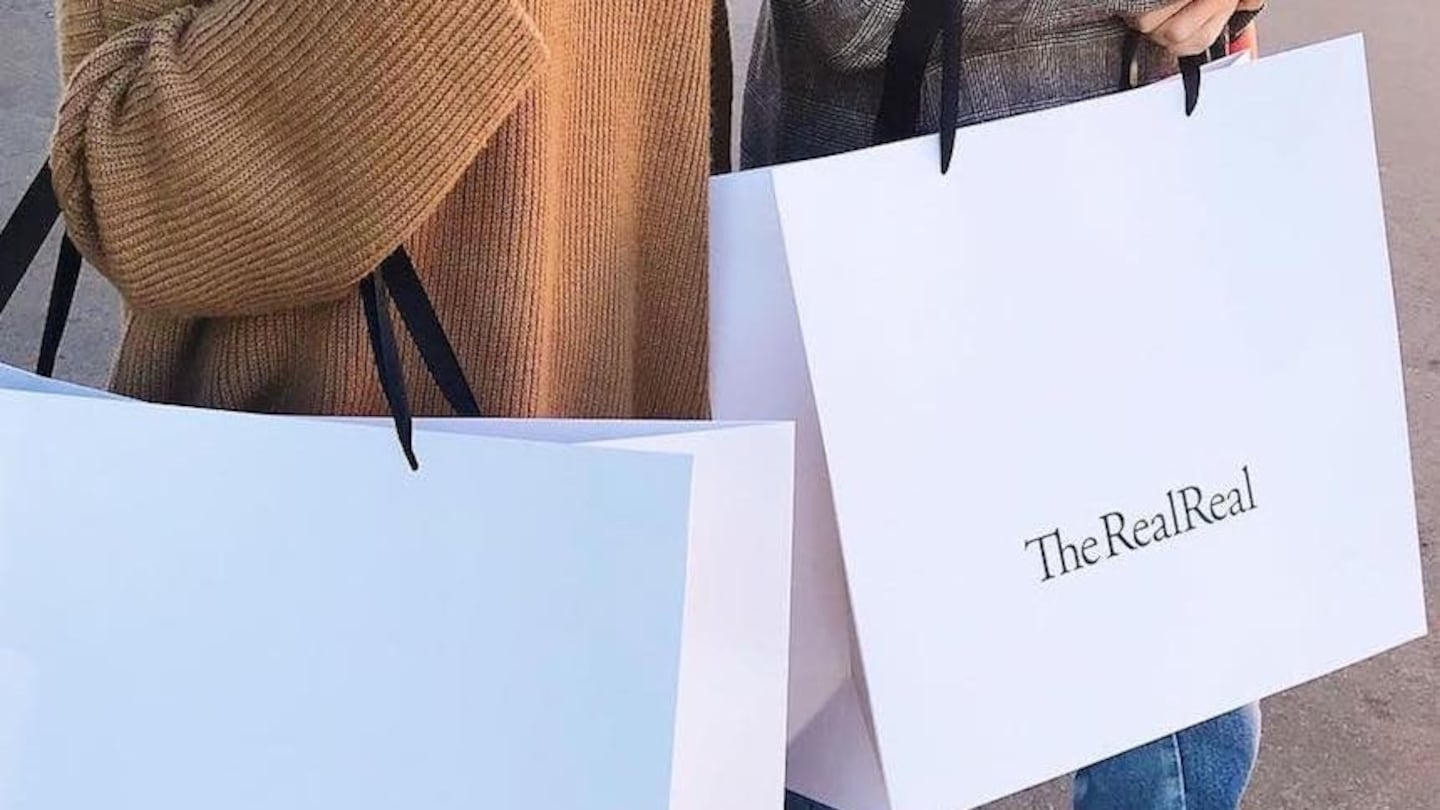NEW YORK, United States — The RealReal is taking a stand regarding accusations that it sells counterfeit products.
In an email sent to customers on Wednesday afternoon, Chief Executive
Julie Wainwright wrote that the second-hand luxury marketplace “strives for perfection, but may not be perfect every single time.”
Wainwright’s note, which was sent with the subject line “Our Pledge to You,” told customers to send items back if they had issues with authenticity.
Wainwright's email comes on the heels of several reports of counterfeit merchandise being sold on the site. Earlier this week, CNBC published an investigation about the fashion company, revealing that the platform's listings include a fake Prada dress and a mislabeled Loro Piana scarf. On Forbes.com, a shopper recently recounted how he spent $3,600 on a Dior bag that was later proven to be a fake.
The RealReal has typically denied or downplayed allegations that it sells counterfeits. Wainwright told CNBC in 2016 that “there no fakes on our site.” In an email to BoF, a spokesperson said that "we stand behind both our process and authenticity guarantee."
But when The RealReal filed for an initial public offering earlier this year, it acknowledged that identifying a counterfeit item can be a tricky process, open to human error.
“Our success depends on our ability to accurately and cost-effectively determine whether an item offered for consignment is an authentic product,” the company wrote in its SEC filing. “While we have invested heavily in our authentication processes and we reject any goods we believe to be counterfeit, we cannot be certain that we will identify every counterfeit item that is consigned to us.”
On Wednesday, The RealReal’s shares fell 8.5 percent following the CNBC report. Earlier this week, however, the company posted positive earning results, with sales in the third fiscal quarter hitting $81 million, up 55 percent from $52 million in the same period a year earlier.
The site’s subscriber base is growing, too. And unlike many of its competitors, it has made headway with designer brands, forging partnerships with
Stella McCartney and more recently,
Burberry.
However, The RealReal continues to lose money. While it calls itself the largest online marketplace for “authenticated, consigned luxury goods” — with $711 million worth of goods sold on the site in 2018 — its customer acquisition, product acquisition and logistics costs are high.
In her email to customers sent out on Wednesday, Wainwright struck a defiant tone, dismissing recent media coverage about counterfeits on The RealReal as “attempting to discredit the business we have proudly built.”
“This is a complex problem,” Wainwright wrote. “The entire team at The RealReal works diligently seven days a week to ensure the highest standards in our authentication process. We are constantly and consistently training our teams, and evolving our technologies to ensure your items are the real thing. There is no other resale company doing more to remove fakes, and put counterfeiters out of business, than The RealReal.”
Wainwright wrote to customers that her company hires “certified experts such as gemologists and horologists, luxury experts who have worked at companies like Sotheby's and Christie’s, and brand experts who have worked directly with luxury brands.” In a note sent out on Monday, Oliver Chen, a senior equity research analyst at American investment bank Cowen, wrote that “authentication has been an area of investor concern; however, we believe REAL is the only player that can currently authenticate luxury goods across various categories with scale, and REAL continues to invest behind detecting counterfeits.”
But the company's authentication process has also come under fire. An investigation conducted by The Capitol Forum, an investigative news and legal analysis publication, in September found that contrary to The RealReal's claims that its merchandise was being authenticated by experts, employees such as copywriters were also inspecting luxury goods.
“They give you a quick 5-minute presentation on what things should look like and then have you go,” one copywriter told The Capitol Forum. “I should not have been authenticating an Hermes scarf, for example, but all they care about is the product getting on the site.”
Another employee told The Capitol Forum that there is so much inventory coming into The Real, that “there is no way everything can be authenticated.”
The RealReal has also been facing litigation from luxury brands over its counterfeit issues. Last year,
Chanel filed a lawsuit against the company, accusing The RealReal of selling counterfeit Chanel products. The French luxury house has stated that the company does not have the authorisation to authenticate such goods. The case is still pending.
Editor’s Note: This article was revised on 6 November, 2019. An earlier version of this article misstated that The Realreal sold a fake Loro Piana scarf; the scarf was mislabeled, not counterfeit. The story has also been updated to include a comment from TheRealReal.
Related Articles:
[ Inside The RealReal’s Plan to Dominate the Secondhand Luxury MarketOpens in new window ]
[ Is That Vintage Chanel a Fake? Depends Who You AskOpens in new window ]
[ Luxury Resale’s Quiet ReckoningOpens in new window ]


